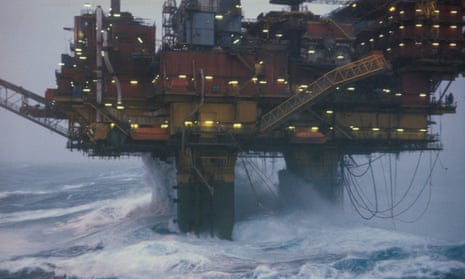The £830 increase in the energy price cap in October announced by Ofgem is being treated by Rishi Sunak as if it is some natural disaster set to befall us and for which as chancellor he can only offer inadequate assistance. It is not. Ofgem made a political decision to protect the privatised energy system and its excess profits at the expense of households in Britain. Sunak’s package announced today will not cover the costs of Ofgem’s choice and will leave millions of households exposed to soaring prices. A new approach is needed. The energy price must simply not be lifted in the autumn.
This will be expensive. An £830 rise in the cap, spread over 22 million households, suggests a collective cost of up to £19bn. Halting the rise could cost as much. But so what? The chancellor’s “super deduction” tax break for big corporations will cost almost £13bn this financial year. The stamp duty holiday cost £6.4bn. Both these choices, made by this chancellor, rewarded the wealthiest at the expense of the rest. The cost of both matches the cost of halting the cap increase. A serious tax on North Sea windfall profits would raise £13bn, much more than Sunak’s £5bn.
Meanwhile, BP and Shell, both headquartered in London, are expected to make a combined £40bn in profits this year across their global operations. But their super-profits are not the product of innovation or some brilliance in business management. They represent a pure transfer of money from consumers to the hands of BP and Shell shareholders. And despite frequent claims to the contrary, these companies’ shareholders are not long-suffering pensioners – Britain’s main pension fund owns less than 0.2% of both companies. Nor are they, as the companies will claim, concentrating on investing these profits. BP and Shell are handing out about £9.5bn to shareholders in share buybacks this year. Meanwhile, even as the major oil companies make super-profits, the smaller household suppliers face bankruptcy, caught between demands for low household bills and soaring prices charged for wholesale gas.
Despite all our technology, we live in an increasingly primitive form of capitalism. Observing the corrupt landowners of the early 19th century, David Ricardo, one of the fathers of modern economics, brilliantly described the excessive payments they were extracting from society as a result of nothing more than their claim to property. The more that was paid by society in these “economic rents”, in Ricardo’s concise economic model, the worse off the rest of society would become.
Today’s fossil fuel giants are the 21st-century equivalent of those landowners, doing nothing other than squatting on a valuable resource and forcing the rest of society to pay them for the privilege of accessing it. As Oxfam’s research showed this week, the pandemic and its aftermath have seen the world’s super-rich become monstrously richer. And it is the owners of the essentials of modern life – in food, energy, pharmaceuticals and tech – that have seen the fastest growth in their wealth, with a new billionaire created every 30 hours. Just as Ricardo predicted, the flipside of wealth hoarding is impoverishment, with millions expected to be forced into extreme poverty over this year.
Profits for the largest companies are at all-time highs, recovering rapidly from the initial pandemic shock. The Competition and Markets Authority last week reported that “mark ups” on prices, the amount added to the costs of something being sold in order to give the seller a profit, by the biggest and most profitable companies have risen from 58% in 2008 to 82% in 2020. It is market power that allows the oil and gas majors to extract their economic rents; so, too, with the four agribusinesses that control 90% of the globe’s grain trade; and pharmaceutical profits during the pandemic have been legendary. New research from the Boston Federal Reserve shows that markets increasingly dominated by a few companies are having a direct impact on inflation.
This is the true source of inflation today. The world is increasingly subject to environmental shocks, such as disease outbreaks and extreme weather events, and racked by political instability, including Russia’s invasion of Ukraine. These shocks are real events, and genuinely make the world a harder and more dangerous place to live. As the effects of climate breakdown worsen, such shocks will become more frequent, threatening a future of high costs and widespread shortages in essentials from food to fuel. But when those shocks and shortages take place in a global economic system that privileges the extraction of profits for a few over the supply of essentials for the many, they turn into repugnant profiteering.
Inflation is not being caused by having too much money circulating, or a “wage-price spiral”. Wages and salaries in the UK have scarcely risen for a decade, relative to prices. Instead, faced with rising prices for essential goods, but with incomes – whether from a salary, a pension, or universal credit – that are being left far behind, most of us can see straight away that the problem isn’t too much money in circulation, but far too little – at least in the hands of those that actually need it. Raising interest rates, or cutting wages, or both, is worse than useless under these circumstances.
Sunak’s announcement today will not cancel out the cost of the price cap rise and will prove to be inadequate. There is a simple choice to be made: either protect the profiteers or protect society. The cap increase should be halted, and a better pricing system devised. Any failing supply companies should be nationalised, like Bulb Energy was last year. Tax breaks for the richest should be reversed; and much more of the super-profits of the oil and gas producers should be taken and put to good use.
James Meadway is director of the Progressive Economy Forum
